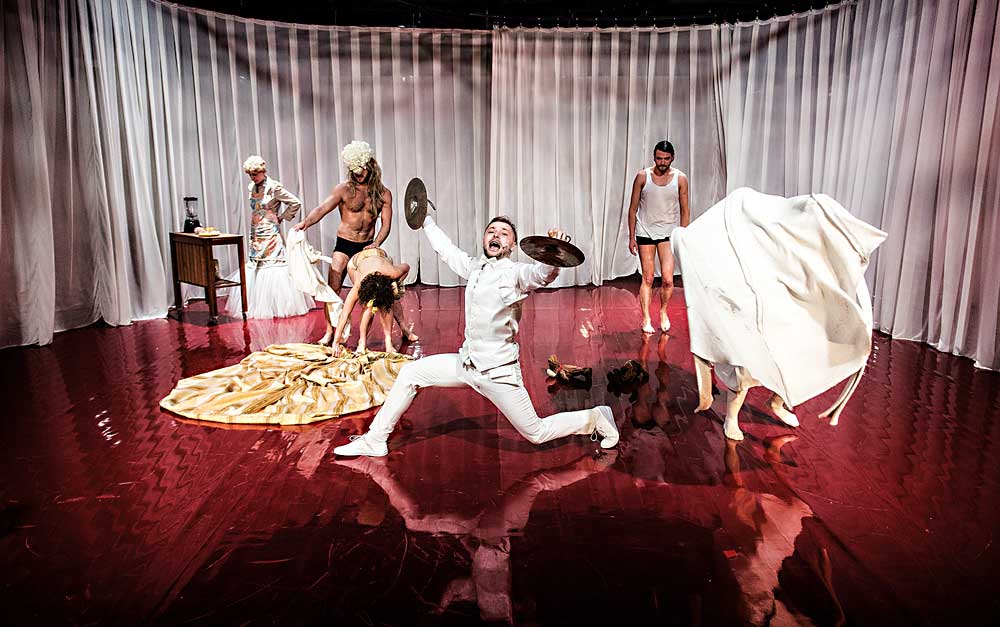
A statue of Copernicus, who was born in Toruń, looks out over the city’s main square. The elegant city has a population of just 210,000, but boasts a number of well-appointed theatres. Another thesis I heard to explain the rise in women directors is that because women weren’t getting jobs in the big cities, they went to smaller ones where they could make work and gain a following. Dialog’s Olkusz describes a kind of “art tourism” that has blossomed as a result. Wałbrzych, a working-class city in southwestern Poland known for its mines, is one example: “There’s a theatre building and municipal funding, but no audience for ‘high art.’ The joke is that every Friday the train from Warsaw to Wałbrzych has a special wagon only fortheatre critics. Now that such interesting, award-winning work has happened there, the city is proud.”
Many of the directors I was keen to speak with were making just such work in far-flung smaller cities. Amatorki, another Jelinek-inspired piece, directed by Ewelina Marciniak, was a highly physical comedy of sex and manners I caught in Gda─sk. The theatre was packed with young people, who howled with laughter not just at the show’s commedia-esque sexual calisthenics, but also at the improvised bits of direct audience address. Marciniak’s former teacher and mentor, Anna Augustynowicz, possesses a more staid style, though one that is similarly clean in its storytelling approach—Each His Own Wilderness, in Sopot, was a spare take on Doris Lessing’s 1959 classic; watching it felt like eating a piece of meat with all the fat trimmed.
As Oleradzka-Świątek and I spoke (with masterful translation by Semil) between performances at Kontakt, our conversation drifted away from women directors (and women playwrights, who are also on the rise) to the choices that govern her festival’s programming. A number of the plays had felt, to this American viewer, heavy, dreary and rather overtly political, but Oleradzka-Świątek put this reaction into perspective. “The festival used to be a meeting of East and West, but that’s changed recently. I try to look at what’s going on in the world and see how theatre reacts to reality. And now we’ve got a civil war next door. So I thought it was important to show what war is, and what leads to war.”
Hypermnesia, directed by Selma Spahic with actors from the former Yugoslavia, could not have been a more apt choice. In it the actors, all in their 30s, play themselves recalling memories from childhood, which of course just so happens to correspond with the war that affected them some 20 years ago. This show was powerful, poetic and alternately deeply funny and moving.
All things considered, the productions I saw in Poland convinced me that the emergence of female leadership in the nation’s theatres has resulted in a muscular reinforcement of the unforgiving themes and bold aesthetics Polish theatre is known for. With girls on top, Polish theatre is sure to continue investigating gutsy topics and gritty aesthetics, while also taking a giant step toward gender equality.
Bent’s trip to Poland was supported by the Center for International Theatre Development.


